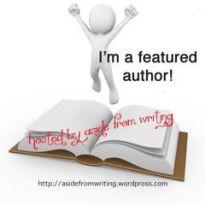This post originally went live on June 12th, 2013. More of a ‘keep going!’ battle cry than an actual point, but I wonder what people think of some of the old standards that got brought up.
So, I’ve gotten into a few ‘debates’ with people on this side of the computer. This ‘debate’ is about what constitutes success for a self-published author. Back in the day, you were successful when you got a contract and got your first royalty check. That doesn’t seem to be the case any more.
I remember reading that 500 eBooks being sold is the sign of a moderate success. I still don’t know if this is true. This is only the sales level. It doesn’t mention anything about royalties. Supposedly, there is a difference between 500 eBooks at .99 cents and 500 eBooks at $2.99. The later is a sign of more success than the former.
What am I getting at here? Every person is going to look at an indie author’s progress differently. Some will look at amount of sales, others at amount of reviews, others at royalties, and any number of things. I’ve been called successful solely because I’m working on my 5th book instead of sitting on my haunches.
So, don’t let anyone tell you if you’re a success or a failure. That’s not their call to make.






Personally I am inclined to define success in terms of the personal satisfaction derived from releasing a better book than the last one, and see it sell (in whatever numbers). Perhaps if I sold a lot more then I would think differently? I would rather hope not
LikeLike
It’s a fluid question and goal in some ways. I’ve found that I change my definition every few months. Several times it’s been to keep myself positive. Even observing my friends who are outside of the artistic fields, I can see success changing. Maybe success isn’t only reaching a milestone, but to keep going forward.
LikeLike
I tend to define success as “Yay! Someone actually wants to read this!”. That being said, I would not be opposed to the number of readers increasing.
LikeLike
Same here. As indies, I think we always want to see our readership grow while being excited by every sale.
LikeLike
This is a really good topic. I often compare my sales unfavorably with others who seem “more successful.” I like what you said at the end: “So, don’t let anyone tell you if you’re a success or a failure. That’s not their call to make.”
LikeLike
Thanks. I need to remember my own advice some days. Think I’m down on myself when there are things beyond my control that trip me up.
LikeLike
You are right about others defining success. In my mind, you are successful if you feel successful. Think of all the successful people (by outside standards) who didn’t feel successful. I think a good example is Robin Williams. There has to be a way for an artist to somehow look objectively at the work and take pleasure from the successful creation. BTW I think you are successful but it’s not my call. 🙂
LikeLike
For some reason, I’m always reminded of the author or his character in Lemony Snickett. A very pessimistic and dire individual that gave a sense of not being successful even though he was published. It’s probably harder for a person to feel successful on their own merit than for others to say they are.
LikeLiked by 1 person
I agree
LikeLike
I think you’ve put your finger on a real question, Charles. Is money (copies sold) the measure of success, or is it artistic merit — or even something else? People do judge by money. It’s like they can wrap their minds around the numbers easily, but actually weighing the quality of a written work is too much for them.
My personal frustration is that I have seven novels in print through two different small presses, but I can’t join SFWA because I don’t get an advance. You could say it’s my own fault because I choose to write in a less commercial way, but that still points to money/copies sold as the measure of success. Like you, I sometimes catch flak at home for not being successful enough. Not my husband, thank goodness, but my son in a vindictive mood will throw this at me to try to get under my skin.
“So, don’t let anyone tell you if you’re a success or a failure. That’s not their call to make.” I couldn’t say it better.
LikeLike
Good point on people finding it easier to wrap their minds around the money and number aspect. Probably why those who aren’t authors tend to ask about that side of things.
I’ve never heard of SFWA before, so I’m curious as to that situation. As for unsupportive family members, I’ve been there mostly with the ‘is it time for Plan B?’ questions.
LikeLiked by 1 person
SFWA is definitely part of the Traditional publishing industry. Anyone can join as an associate member, but to be a full member and have voting privileges, hold office, etc. you have to make a certain amount on an advance for a novel, or make several sales to qualifying magazine markets, where qualification is based on their payment per word.
This has pretty much excluded independent press and self-published authors, who get royalties but no advance. In the past few years, there has been some loosening of the rules, so that very successful self-published and small press authors can be full members. You have to sell 1,000 copies of a single title within a six-month period, if I recall. Still pretty high standards.
I know many fine writers who would qualify but choose not to join SFWA, either because they disagree with the money=success ideal, or because they don’t think SFWA does enough for its members.
LikeLike
I can see how that money = success thing becomes an issue. It sounds rather hard to meet for someone without a team behind them. Sadly there are a lot of venues that indie and self-published authors aren’t able to follow. One of the reasons I can’t get my books into the local library’s eBook system.
LikeLike
I judge my success in levels. First level is actually publishing a book–success! Second level is having people actually like the book–success! Third level is publishing another book–success! Fourth level is having people actually like the book–success!
My next level is probably to publish a third book, and subsequently have people like it. Money and sales aren’t really on my radar right now, probably because I got into this game with the assumption that I wouldn’t start seeing any actual monetary gains until I have at least three or four books out there.
My end goal–the ultimate success I’m aiming for–is to make enough money from my book sales to live off of. It’ll probably take a while, but I’m okay with that. As long as I get there one day 🙂
LikeLike
I sense a cycle in that first paragraph. I’ve been told that it isn’t until the third book that you should start seeing money because people will see you as a more serious author. Which is strange considering how many big names only have one or two books out there. Though I can’t talk too much since my writing is supposed to pay some of the bills. Probably why I get so twitchy and I think you have a smarter path. Better to take it slow than go all in from the beginning.
LikeLike
It’s true that some big names make it big with only 1-2 books, but then again, that’s usually traditional publishing with thousands and thousands of dollars spent on marketing. With self-publishing, we don’t exactly have that luxury, do we? The sweet spot I heard was 5 — once you hit 5 books, that’s when you start to get a steady income. Maybe not enough to live on, but definitely enough to justify cutting back on hours at work, or investing more in marketing, etc.
I wish I could go all in! I just don’t have the savings to do that, lol. Plus, I’ve discovered that I just can’t pump out books as quickly as I’d need to in order to go all in. Try as I might, it takes me a few years to get a book from start to finish. And a book published every 2-3 years definitely won’t be enough to pay the bills!
LikeLike
Good point. Also I think it was easier to be a one hit author long ago because there wasn’t as much saturation. Then again, they tend to be realistic fiction that analyzes a social topic.
I remember hitting 5 . . . things were fun, but I don’t remember much of a change. Long series always have a problem in the indie circuit because a wonky schedule can hurt you. Momentum is really hard to maintain.
The thing about going all in is that it requires a perfect situation to some extent. Either having a lot of savings, a high earning spouse, or other positive paths. Also the negative such as when one can’t find anything more than $10/hour temp jobs and decide there’s nothing else to lose. You have to weight a lot when making that decision, so it’s definitely smart to avoid until you’re sure. As for a book every 2-3 years, George Martin seems to get by with worse. 😀
LikeLike